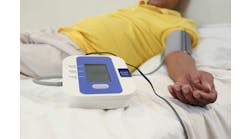Salt Lake City-based Health Catalyst, a data analytics company, has completed its acquisition of Medicity, a developer of health information exchange (HIE) technology, and the deal adds data exchange capabilities to Health Catalyst’s data, analytics and decision support solutions.
The deal was first reported by HIStalk back in May. Aetna acquired Medicity back in 2011 for a reported $500 million. The company, also based in Salt Lake City, offers products and services that enable health systems, hospitals, physician practices and HIEs to securely access and exchange healthcare information. The terms of transaction between Health Catalyst and Medicity have not been released.
According to Health Catalyst executives, Medicity’s customer base includes more than 100 clients, including 21 state and regional HIEs, large employers, health plans, 75 health systems encompassing over 1,000 hospitals and more than 185,000 providers in physician groups and extended care facilities, in support of over 75 million patients. Dan Burton, Health Catalyst CEO, says the acquisition combines Medicity’s deep clinical dataset of over 75 million patients and significant transactional capabilities with Health Catalyst’s Data Operating System, including AI-driven analytics and business intelligence, and a set of financial, cost, patient outcomes, and supply chain data from over 400 hospitals, 4,000 clinics and a data set of over 100 million patients nationwide.
“The future of healthcare will rely on the broad and more effective use of data to improve quality and costs, and with this acquisition, Health Catalyst can combine its expertise in data, analytics and decision support, including a data asset of over 100 million patients, with the expertise of Medicity in data exchange across the continuum of care,” Burton said in a statement.
In an interview with Healthcare Informatics about the deal, Burton said Health Catalyst’s acquisition of an HIE technology company reflects on the state of the HIE market.
“I think there are core components of value that HIEs provide to their customers from an interoperability perspective and from a data exchange perspective that will live on and need to be fulfilled for a very long time. As the government subsidies have ended, you see market forces taking place, and, as a result, there’s a need to reassess the economic model. That’s one of the reasons why I think we got excited about the combination, where we can keep providing the elements that HIEs provide that are sustainable and valuable to clients, and then bolster that with more strength in data capabilities and more strength in analytics and then pinpoint improvement, and that improvement has its own inherent return on investment.”
According to Health Catalyst, the integration of Medicity expands the capabilities of the Health Catalyst Data Operating System, which will now have the ability to receive and analyze data in real time, and then embed the resulting insights into the workflow of most electronic health records (EHRs) on the market today. “The combined companies will also have a compelling solution for the loosely affiliated community ambulatory care management space. These organizations, primarily independent physician groups, are in dire need of a simple means of integrating data between EHRs at the patient encounter level, with enough clinical quality analytics to meet the legal requirements of a Clinically Integrated Network,” company executives said in a press release.
In the interview, Burton said the two companies have complementary strengths, with Medicity providing significant transactional capabilities now combined with Health Catalyst’s expertise in analytics.
“Medicity has a great deal of experience in data with regards to patient interactions in the ambulatory setting, whereas, Health Catalyst really grew up out of the acute care setting environment and has a very real rich data set in the acute care setting. The marriage of Health Catalyst’s 100 million or so patient record data set with Medicity’s 75 million patient record data set, where one has strength in the ambulatory setting and the other has real strength in the acute care setting, is a very complimentary set of capabilities,” Burton says. “Likewise, Health Catalyst’s strength and capability has always been in using data, analyzing that data and pointing out opportunities for improvement and we’re just beginning to get more specific transactional workflow-oriented capabilities and experiences, whereas Medicity has more depth and strength on the transactional side of the equation that really bolsters Health Catalyst’s capability.”
As health systems, hospitals and provider organizations move forward with population health management efforts and look to improve performance in value-based care contracts, the leveraging of data and analytics will be foundational to these efforts. “I think that will be a very significant trend over the next decade or longer—data as an asset to healthcare organizations, to leverage, is becomingly increasingly central and increasingly important,” Burton says.
Moving forward, organizations will need strong analytics capabilities and strong connectivity for providers and patients, and Burton contends that combining Health Catalyst’s and Medicity’s capabilities enables the company to platform to “offer solutions designed to help clients apply data-driven insights in a value-based care environment.”
“This combined entity now has a richer data asset, and we’re adding capabilities to that data platform that we think are going to be necessary to be leveraged by health systems to start using data, especially as the economic model shifts more towards a value-based model. Understanding the data, specifically around the cost of care, becomes very centrally important for survival, and having a rich data asset that can enable them to understand that, analyze it, pinpoint improvement opportunities and then do something about it, we believe is fundamental to survival and success,” Burton says.
Bringing in data from across the care continuum is particularly important for population health efforts, and this is where many organizations struggle, Burton contends. “When we look at a typical organization that wants to start making strides in the area of population health and we look at where they are from a data asset perspective, versus where they need to be, we see an incredible gap in the ability to access the right amount of data, the right types of data from a relevance perspective, and from a timeliness perspective. We recognize the need for partners like Health Catalyst to step it up and do more in helping these health systems and healthcare organizations to have the data that they need to understand what’s working and what’s not working, across a population of members and individuals, across lots of different settings,” he says.
In a statement, Dale Sanders, Health Catalyst’s president of technology, said, “Adding Medicity’s data skills and technology, particularly in physician-led value-based care networks, is a great complement to our solutions.”

